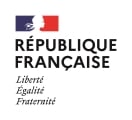Risk management and control
As part of its tasks, Agence France Trésor must:
- define and establish a monitoring framework and procedures for the French government’s financial transactions
- manage the risks incurred in financial transactions, such as interest rate risk, counterparty risk, liquidity risk, operational and data processing risk, and market risk
- ensure administrative monitoring of financial transactions
- ensure proper settlement of transactions on the Treasury Account held at the Banque de France (back-office processing)
Risk control is a cross-cutting activity that applies to all of the Agency's operations.
Compliance with market practices
The French government is not a financial institution, but Agence France Trésor, which acts as both a lender and cash manager, is like a financial institution because of its activities, its risk exposure and its business areas. Therefore, the provisions of the Order of 3 November 2014 on internal control in banking sector undertakings (French only, no English version) are applicable, with the necessary adjustments.
Four principles have proven to be critical:
- constant monitoring within each operational unit and periodic second-level audits of the effectiveness of this monitoring
- separation of functions (particularly, between initiation, validation and monitoring of the risks incurred in transactions)
- definition of internal risk limits
- compliance with the audit trail (reconstitution of transactions and the relevant flows in chronological order)
Consequently, Agence France Trésor has designed and periodically updated a general activity framework that sets out the applicable standards for management, organisation and internal control. The Director General of the Treasury, who chairs Agence France Trésor, has approved this framework. A specific code of practice, which draws inspiration from the laws and regulations governing the financial sector, has been developed for Agence France Trésor personnel.

